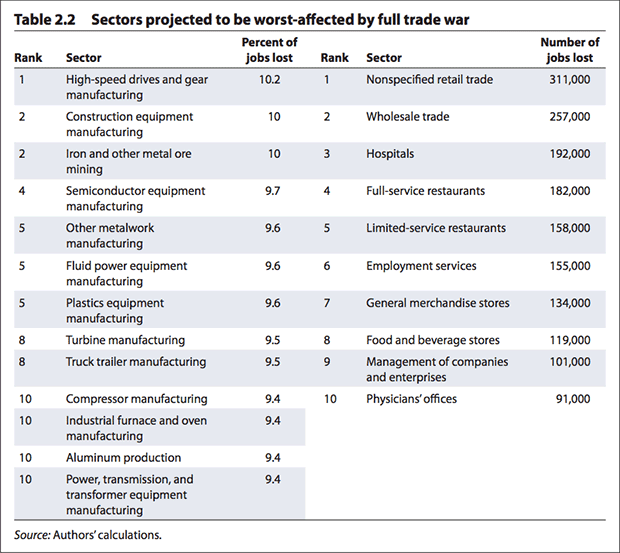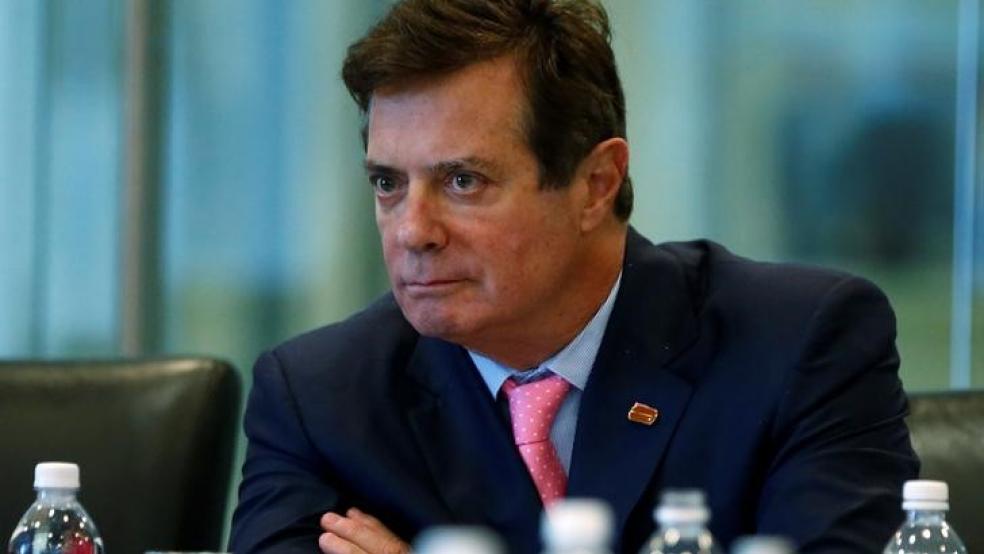In a speech to the Economic Club of New York last week, GOP presidential nominee Donald Trump said his pro-growth policies would create 25 million new jobs.
Today, the nonpartisan Peterson International Institute of Economics eviscerated that claim in a deep analysis of the positions Trump has taken.
Related: Trump Has a New Economic Plan, but the Numbers Don’t Add Up
The Institute’s review of the proposed trade policies of both Trump and Democratic presidential nominee Hillary Clinton concludes that the Republican’s proposals could cost America almost 5 million jobs, plunge the country into recession and increase illegal immigration from Mexico.
[The Peterson International Institute of Economics, a Washington-based, nonprofit and nonpartisan research institution, and The Fiscal Times are supported by Peter G. Peterson but operate independently of each other.]
The Institute said in its three-part report that the proposed trade policies of both Clinton and Trump “would deeply harm the American economy. Furthermore, they would primarily hurt average American households on modest incomes, and especially many of the individuals and communities that were already hard hit by the crisis.
“Curbing trade will worsen rather than solve the problem of American income stagnation by reducing families’ purchasing power, and by further slowing productivity growth. In fact, our analysis shows the recession that the belligerent trade policies proposed by Trump would cause would devastate viable American businesses,” the Institute said.
The analysis took both candidates to task for their anti-trade rhetoric, but it found the positions taken by Trump the most dangerous and potentially damaging.
Related: Trump’s ‘Penny Plan’ Has Appeal, but Experts Say It’s Unworkable
It cited Trump’s calls for ripping up existing trade agreements, renegotiating the North American Free Trade Agreement, imposing a 35 percent tariff on imports from Mexico and a 45 percent tariff on imports from China, and pulling out of the World Trade Organization, which is “the core framework for U.S. commerce with 163 countries.”
To the question of whether a President Trump could unilaterally carry out his threats, Gary Clyde Hufbauer, a senior fellow at the Institute, wrote: “The short answer, at least in the short term, is ‘yes,’ both because of the president’s constitutional power over foreign affairs and because multiple statutes enacted by Congress over the past century authorize the president to impose tariffs or quotas on imports and regulate foreign commerce in other ways as well.”
And while Trump would face stiff opposition to his tariffs and lawsuits from a slew of manufacturers, other countries would not wait for American courts or the WTO to review his actions. In a full trade war scenario, with heavy tariffs imposed on China and Mexico, “employment in 2019, the trough of the recession, falls by nearly 4.8 million private sector jobs, more than 4 percent below baseline private sector employment,” the Institute found.

Source: Peterson International Institute of Economics
The drop in employment would hit “a broad swath of states,” according to the Institute’s analysis, including some of the biggest battlegrounds in the election, including New Hampshire, North Carolina, Ohio and Pennsylvania.
Related: Trump’s Tax Plan Would Cost Trillions, but the Numbers Are a Moving Target
“Industries that manufacture machinery used to create capital goods in the information technology, aerospace, and engineering sectors, which depend on exports, would be the most intensely affected,” the Institute said. “But the trade shock would also damage sectors not engaged in trade, such as wholesale and retail distribution, restaurants, and temporary employment agencies, particularly in regions where traded commodities are produced. Millions of American jobs that appear unconnected to international trade—disproportionately lower-skilled and lower-wage jobs—would be at risk.”
An analysis of the impact of the trade policies of Clinton and Trump -- written by Marcus Noland, Sherman Robinson and Tyler Moran -- said that if China were to take retaliatory trade action and terminate aircraft purchases, that alone could cost 179,000 American jobs.





